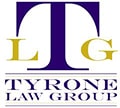The executor of an estate is the person in charge of closing out the financial affairs of a deceased person. If you have already drafted a will with your wills and trust attorney, they will usually designate a close relative, friend, accountant, attorney, or financial institution as executor.
If you want more than one person to oversee your affairs, for example, if you have more than one child, you can name co-executors.
The executor you go with should be trustworthy and wise. Even if they are also an heir, the law requires them to act in the estate’s best interests.
What is the role of an executor? Here are some of the things they can do:
Get the death certificate
The executor is responsible for funeral and burial preparations, which are paid from the estate.
The funeral home will inquire about the number of copies of the death certificate required. The executor should make the copies and use them to notify banks, life insurers, investment firms, and any other relevant organization about your death and to file the last tax returns.
If you were receiving Social Security benefits, it is vital to inform the Social Security Administration immediately to stop those payments and avoid being charged later.
Find your will or trust.
The person you name as the executor should know the location of the trust or will and should be ready to produce it as soon as possible upon your demise.
For the probate court, you’ll need a copy of the will. It is usually required to be filed within a few days to a month after death.
If you already had a living trust, you may be able to skip probate court if the trust was properly set up.
Trust assets can be distributed immediately without court approval, whereas a probate judge must distribute assets covered by a will. The length of the probate process varies by state and spans from six months to two years on average.
The living trust can avoid probate court because the trust owns all of the property and not the deceased person.
Seeks professional advice
Once the executor receives the will or trust documents, they will better understand how difficult the estate administration process will be.
At that point, it’s their responsibility to seek the advice of an estate attorney, tax accountant, appraiser, or any other specialist whose knowledge can assist in avoiding blunders.
An attorney can advise on legal measures to take and assist in answering queries from beneficiaries who may be pressuring for a rapid transfer of assets.
If the estate must go through probate, the attorney will also know which paperwork to complete to help the procedure go as smoothly as possible.
A tax professional will help with final tax returns and concerns concerning inherited assets such as a home, investments, retirement funds, or a family company.
The executor ensures that antiques and property are appraised to determine their fair market value.
Locate the assets and protect them.
A precise inventory of assets and where to get them is the nicest present an executor can receive from the deceased.
Wills, trusts, and papers linked to insurance, investment accounts, prearranged funeral plans, bank accounts, real property such as vacation houses or artwork, company interests, and partnerships are all included.
Documents proving the worth of antiques or collectibles might also be helpful.
The executor should locate the assets mentioned in the will and ensure they are safe and protected. If possible, they should move them to a safe area.
Pay the bills and taxes.
The estate is responsible for paying the deceased person’s bills, including any income and estate taxes payable. Potential beneficiaries are not obligated to pay debts that exceed assets.
Before paying any debts, the executor must ensure that the estate’s assets are sufficient to cover them. If not, the creditors will be prioritized by a probate judge.
The executor must do so if you do not keep precise records of monthly expenses, income, and debts.
The executor should review the checkbook or bank statements, which record the dead person’s payments and deposits.
If feasible, they should go through regular mail, email, and tax returns for more evidence.
A bank can open an account in the estate or trust’s name, allowing the executor to pay bills and accept deposits.
How do you appoint an executor?
Often, the deceased’s will name an executor of the estate. But sometimes it doesn’t, and other times, the dead, also known as the testator, dies intestate (without a testament), or the will is invalid.
In such circumstances, a probate court judge will choose someone to fill this job, usually a close relative.
This individual will be referred to as an administrator or personal representative rather than an executor, but the role will be the same.
To avoid complications and ensure that you don’t leave the control of your estate to the court, you should work with your estate planning lawyer Largo and put together a will.
When choosing an executor for your estate, ensure they are the right fit. You should note that the court can override the deceased’s choice of estate executor if that individual is not of legal age, has a criminal record, has a substance abuse issue, or is suffering from a mental disease.
The court may not appoint a new executor because a beneficiary is dissatisfied with the previous one.
You should take your time with your attorney when finding an executor. As a rule, ensure that the executor you find is ready for the task and is prepared to work with the attorney and beneficiaries and ensure that your will is respected and your estate goes to the right hands.
The last thing you want is to appoint the wrong person not ready to protect your hard work and estate.
